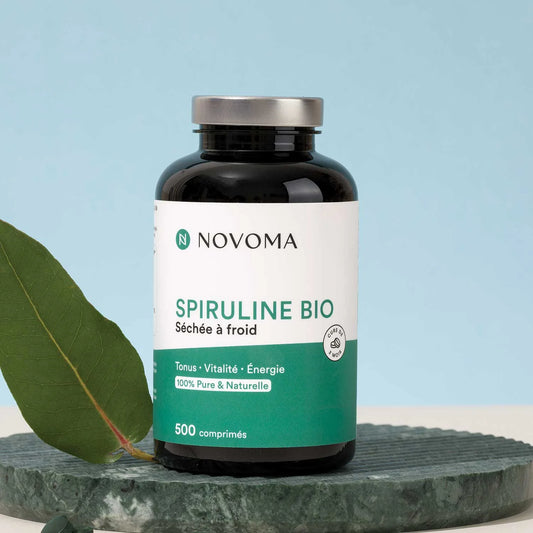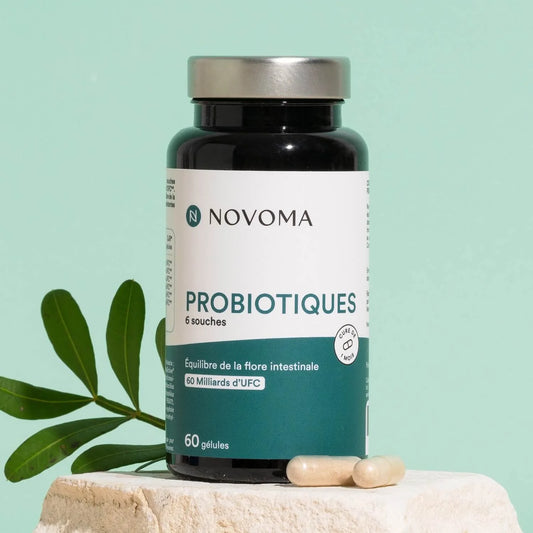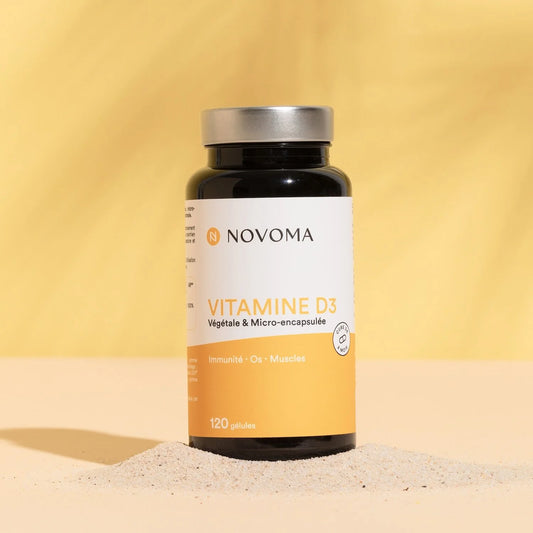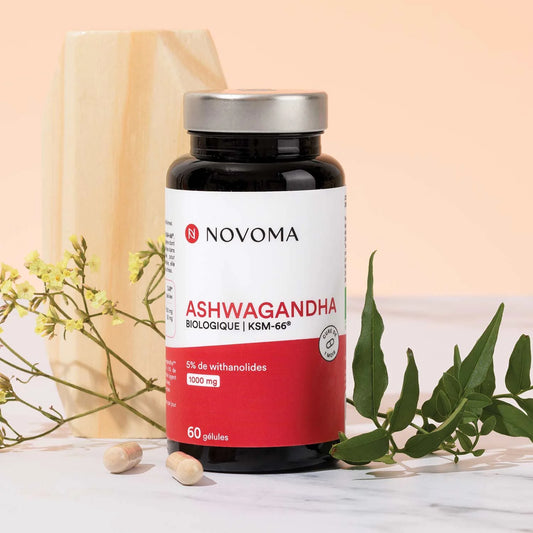
Diet and Bloating: Our Tips for Soothing Digestion
Summary
Today, we discuss bloating. Ah, those famous companions of our digestive disorders!
Did you know that our diet is often the main culprit behind these gastric pranks? Yes, our food choices can be the source of these disturbing situations. But don't worry! You have the power to change things.
In this article, we explain the relationship between diet and bloating, adding a touch of practical advice for a more serene digestion.
Understanding the link between diet and bloating
The digestive system, a gas production plant
The digestive system is a complex network of organs that break down food into absorbable nutrients. However, when certain foods are not fully digested in the small intestine, they pass into the colon. There, bacteria ferment them, producing gas. The result? Bloating, flatulence, and discomfort… 😞
But what are these rebellious foods responsible for this digestive discomfort?
Types of foods responsible for intestinal gas
We are talking about foods high in insoluble fibers, like certain legumes, whole grains, and leafy vegetables, which can be gas triggers. But also, dairy products containing lactose, a sugar that some people have difficulty digesting. And let's not forget fermented foods! Although rich in beneficial probiotic bacteria, they can also lead to gas production during digestion.
We recommend
Formule Probio
Clinically proven effectiveness on intestinal flora.
- ✅ 60 Billion CFUs per dose
- ✅ Synergy of 6 probiotic strains
- ✅ Gastro-resistant DRcaps® capsules
- ✅ Prolonged effectiveness
Foods to avoid when bloated
List of foods known to promote bloating
To say goodbye to bloating, let's pay attention to what we put on our plates! Avoid consuming in large quantities these top dietary flops:
-
Cruciferous vegetables: cauliflower, broccoli, Brussels sprouts;
-
Legumes: beans, lentils, chickpeas;
-
Dairy products rich in lactose: milk, cheese, ice cream;
-
Starches: potatoes, pasta, white bread;
-
Whole grains: whole wheat, rye, semolina, barley;
-
Foods rich in insoluble fibers: wheat bran, whole grains;
-
Fermented foods: sauerkraut, kimchi, kombucha.
These foods are rich in FODMAPs, the true culprits of intestinal discomfort! Now that you better understand the link between diet and bloating, let's take a closer look at what these FODMAPs really are.
FODMAPs! What are they?
These are small insoluble fibers, so-called "fermentable" carbohydrates that turn your belly into a real gas battlefield! Present in many foods, our intestines cannot completely digest them. Once in the colon, they are fermented and produce gas.
👉 For those curious to learn more, take a look at this article which provides a list of foods low or high in FODMAPs.

What to do in case of difficult digestion?
To reduce gas, think of alternatives!
For an anti-bloating diet, make wise swaps! Opt for spinach or zucchini instead of cruciferous vegetables, tofu or tempeh instead of beans, and soy yogurt instead of dairy products. Also prefer ripe bananas instead of apples and pears, and citrus fruits instead of stone fruits.
👍 Need more ideas? Check out this table for other substitutions.
In the kitchen, a few tips can make all the difference! Prefer gentle cooking methods like steaming or slow cooking, which facilitate digestion. Soak legumes before cooking them to reduce their FODMAP content. And don't forget to add digestive herbs and spices like ginger, mint, and turmeric to your dishes for smooth digestion.
And for an extra boost, consider probiotics. ✨
Special mention to probiotics that contribute to the balance of intestinal flora
If we end up with foods that cause bloating, combined with an unbalanced intestinal flora, well, we can say hello to digestive discomfort!
Digestion depends on the work of our microbiota, this complex set of thousands of microorganisms that work in harmony to digest our food. But when "bad bacteria" take up too much space, trouble begins. They can ferment food excessively, leading to unpleasant bloating.
🙋♀️ This is where consuming probiotics becomes more than interesting! A small cocktail of good bacteria is effective in taking care of your intestinal microbiota and restoring balance. And if you want to know more about the effects of probiotics, check out our complete guide.
Want to go further? Our Digestion Pack offers a comprehensive approach to promoting serene digestion.
The importance of chewing and food hygiene in relieving digestive discomfort
😁 Chew for better digestion
Diet and bloating, did you know it also starts with the first contact with food in our mouth? Yes!
Chewing food well promotes effective digestion by preparing optimal breakdown of food, thus improving nutrient absorption in our intestines. Conversely, insufficient chewing can lead to incomplete digestion, favoring the fermentation of undigested food in the large intestine, and thus bloating.
So, at the table, chew, savor, and say goodbye to bloating! 🍽️🎈
Good habits to minimize the risk of bloating
Here are some simple rules to adopt:
-
Reduce overly fatty meals.
-
Avoid eating too quickly.
-
Drink at least 1.5 liters of water per day, ideally outside of meals.
-
Engage in regular physical activity (at least 30 minutes 3 times a week) to speed up gas transit.
-
Minimize stress as much as possible if it is a factor triggering your bloating.

Meal ideas to soothe abdominal bloating
Hassle-free meals
Ah, the delights of anti-bloating cuisine! Light moussaka, quinoa tabbouleh, vegetable and chicken soup, strawberry-kiwi tiramisu, almond chouquettes, asparagus pasta salad, zucchini-rocket velouté… The internet is full of these delicious recipes and gentle on your belly. No more headaches! Enjoy worry-free meals!
💧 And don't forget to stay hydrated! Try these anti-bloating drinks specially designed for your intestinal well-being.
Last (but not least) useful tips...
For light digestion, adopt the rule of moderate portions at each meal. Leave room for our friends, the foods, without overloading our belly, otherwise watch out for surprise bloating!
And why not spice up our days with more frequent and smaller meals? Forget the traditional three big meals and opt instead for five to six small snack breaks.
Diet and bloating: the essentials to keep in mind
Here are 3 points to keep in mind for happier meals and smooth digestive adventures:
-
You have the power to act proactively to say goodbye to these discomforts. Onward to victory over bloating!
-
By making the right food choices and making a few small adjustments to your culinary habits, you pave the way for trouble-free digestion. Your plates are your allies!
-
And remember, every little change in your diet is like a little magic wand that can improve your digestive comfort.





























